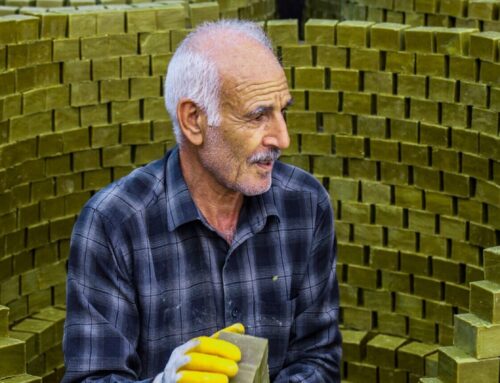The summit featured a first-rate panel of speakers.
They took to the podium to share their thoughts on finance, the market and their role in society, and to try to establish a link with the necessary management of the common good.
The 3rd Common Good Summit took place on 1 and 2 June.
Organised by the Toulouse School of Economics and Challenges, Les Echos and Le Parisien, the summit featured a first-rate panel of speakers. Among them,
- Eminent researchers:
- Two Nobel Prize winners in economics, Jean Tirole, Honorary President of Toulouse School of Economics (TSE) and Bengt Holmström (Professor at MIT),
- More than a dozen professors from prestigious universities, including Harvard, MIT and TSE;
- Heads of large, multinational companies:
- Exxon Mobil,
- LVMH,
- Pfizer – whose net profit reached 30 billion USD in 2022,
- Amazon,
- Google (DeepMind, piloted by a French female Polytechnician)…
Over the course of the two days, they took to the podium to share their thoughts on finance, the market and their role in society, and to try to establish a link with the necessary management of the common good, envisaged through the living world, food, health, the right to freedom of movement and ‘animal welfare’.
In addition to their determination, these decision-makers have the colossal financial, human and technological resources to succeed.
The will and the strength are there, but additional incentives are needed.
We welcome the desire to decompartmentalise fields of research expertise. The conference brings together decision-makers who have the will to act, since they are physically present (with the exception of Exxon and Stellantis) and, for the most part, are sponsoring the event.
In addition to their determination, these decision-makers have the colossal financial, human and technological resources to succeed. The strike force is impressive. But it is not enough. Decision-making requires an additional incentive or a call to order and to the law for offenders (against “free-riding”) and a powerful narrative by the public authorities.
How can the narrative help people to understand and accept the need for sacrifice?
The narrative of the fight against climate change needs to be corrected.
A 2023 edition, entitled “Sacrifices and Opportunities“.
All these levers and limits are the subject of research. How can the narrative help people to understand and accept the need for sacrifice? The stories that prevail feature a hero fighting an enemy, justifying the fact that a sacrifice must first be shared, with a view to a delayed reward. And not the other way round, as illustrated by the French government’s losing narrative on pension reform, where the sacrifice comes at the end, Paul Seabright, TSE, points out.
According to Bengt Holsmtröm, the narrative of the fight against climate change needs to be corrected: reaching or not reaching the 1.5°C of the Paris Agreement target is not the right enemy. The local and physical manifestations of this change constitute a more concrete and identifiable target.

These associations present themselves as the heroes of one or more generations in the face of a clearly identified enemy. They campaign for a shared sacrifice for a better future.
Other participants also made their mark on the summit with their speeches.
- The founder of L214, Brigitte Gothière, had a polite exchange with LVMH’s strategy director, Jean-Baptiste Voisin, who presented the charter of good practice for crocodile farming, which has become an international standard (!). The question of the usefulness of making leather goods from crocodile skin was not raised until the end of the round table, concluding the discussion rather than opening it up.
- Another aspect of the discussions on the negative impacts of livestock farming was the question of how to organise the protein transition. Committing cereal farming to crop rotation represents a conversion as important as that achieved for organic farming. Local initiatives are already working towards the emergence of a pulses and grains business (Qualisol’s Graines et Légumineuses de France in Occitanie).
- Not surprisingly for the organisers, Extinction Rébellion interrupted the summit to denounce, in a speech in the form of a trial for inaction, the general greenwashing of the conference, and to point out the responsibility of the companies represented.
On the narrative side, these associations present themselves as the heroes of one or more generations in the face of a clearly identified enemy. They campaign for a shared sacrifice for a better future.
About Positivéco
At Positivéco, we see new national and international CSR regulations as vectors for positive growth.
Our job: to improve the readability of your activities for better valuation.
Since 2009, we have been supporting financial institutions, public players, and listed and unlisted companies in the evaluation of their CSR policies, the production of their extra-financial reporting and the implementation of their climate investment and aid projects. Development.
Make an appointment today and find out how to meet the new requirements of economic transparency while serving the project of your company.









Contact us now!